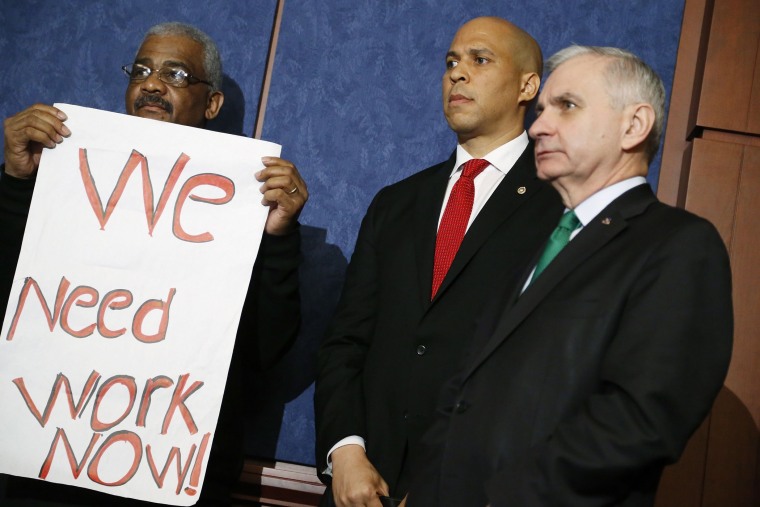After months of effort, a group of senators from both parties announced last week they'd reached a deal on extending unemployment benefits. Sen. Jack Reed (D-R.I.), one of the lead negotiators, called it a "bipartisan breakthrough."
And by most measures, it was. The agreement would extend jobless aid to nearly 2 million Americans, without increasing the deficit. It's a popular, election-year measure, backed by a Senate supermajority, and the compromise is poised to pass the chamber next week.
That House Speaker John Boehner (R-Ohio) announced yesterday, however, that the Senate shouldn't bother -- House Republicans won't even consider the "bipartisan breakthrough."
"We have always said that we're willing to look at extending emergency unemployment benefits again, if Washington Democrats can come up with a plan that is fiscally-responsible, and gets to the root of the problem by helping to create more private-sector jobs. There is no evidence that the bill being rammed through the Senate by Leader Reid meets that test," Boehner said in a statement Wednesday.*
That the Republican leader doesn't want to extend unemployment benefits is predictable. But what mattered yesterday was the weakness of his excuse.
If Boehner were to say the House GOP simply doesn't see helping the unemployed as a top priority, it would at least bring some candor to the debate. But since that'd be politically difficult, the Speaker is left with rationalizations for inaction that don't really make any sense.
Let's note from the outset that Boehner's underlying position is itself a reversal of sorts. In the years that followed the economic crash in 2008, both parties agreed that extended unemployment benefits were a no-brainer -- Congress approved a series of extensions, without concern for the deficit, just as a matter of course.
Republicans then changed the rules of the game: the GOP would consider extensions if Democrats found offsets.
But in this case, Dems did find a way to pay for the jobless benefits, through something called "pension smoothing," which is why the bipartisan compromise picked up Senate Republican support.
What's more, Boehner's statement yesterday said Republicans want an unemployment bill that helps create more private-sector jobs -- because public-sector jobs apparently have cooties? -- but the Speaker is apparently unaware of the fact that the CBO has said jobless aid is worth hundreds of thousands of jobs this year.
Democrats would welcome additional job-creation efforts, but in recent years, congressional Republicans have rejected any and all bipartisan bills on the subject.
Finally, Boehner raised logistical concerns about the Senate bill, referencing administrative troubles raised by the National Association of State Workforce Agencies. On this, the Speaker has a point -- some of the provisions demanded by Senate Republicans pose logistical problems.
But here's the kicker: if Boehner were serious about helping the millions of Americans who need these benefits, he'd agree to amend the bill as necessary. Instead, the Speaker is committed to killing the Senate bill, before it even passes, without lifting a finger to do any real work on the subject at all.
And because Boehner assumes gerrymandered districts will keep his party in power whether Republicans govern effectively or not, the Speaker apparently sees no incentive to care.
This is why we can't have nice things.
